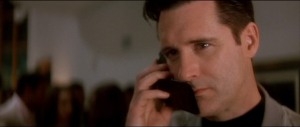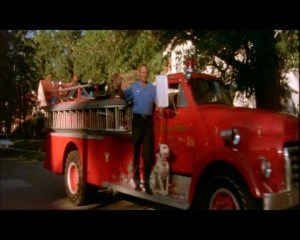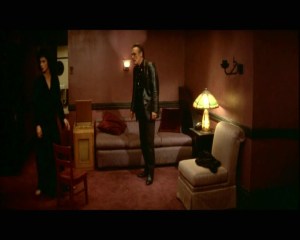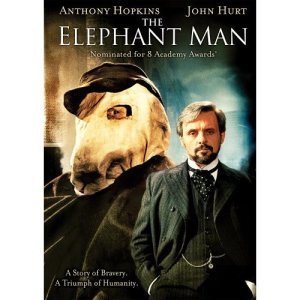
Originally was going to be a made for TV production, ended up being a film. A star making performance by attractive Naomi Watts.
All his career, director David Lynch has made films that demand something from his audience. The story doesn’t have a traditional beginning middle and end. On the DVD, Lynch himself has reluctantly provided David Lynch’s 10 clues to unlocking Mulholland Dr (To be fair, I don’t know if you can ever fully understand a Lynch film, but some of the major structures may be solvable)

The movie makes detectives of the audience. For example, notice how the cup changes into a glass above. The story is like a dream most of the time, we must try and decode what’s reality and what’s a dream world.

Los Angeles is in many ways the main character in Mulholland Drive, and together with Angelo Badalamenti’s music is a very atmospheric location. It’s a place where everyone dreams of being someone, or something else. It can make a few of those dreams come true, while shattering the rest. It’s the city where many would-be actors have two names – the one they were given at birth and the one created especially for their successful other selves.
Roads seem to appear often in Lynchs films.
Lynch: “And Fellini’s La Strada is one of my favourite films! A road, I’ve been thinking, is a moving forward into the unknown and that’s compelling to me. That’s also what films are – the lights go down, the curtain opens and away we go, but we don’t know where we’re going” (quoted from the book Lynch on Lynch)
Spoilers ahead: Lynch talks about the Naomi Watts character from Mulholland Drive in the interview book Lynch on Lynch:
“This particular girl – Diane – sees things she wants but she just can’t get them. It’s all there – the party – but she’s not invited. And it gets to her. You could call it fate – if it doesn’t smile on you, there’s nothing you can do. You can have the greatest talent and the greatest ideas, but if that door doesn’t open, you’re fresh out of luck. It takes so many ingredients and the door opening, to finally make it. There are jokes about how in LA everyone has got a resume and a photo. So there’s a yearning to get the chance to express yourself – a sort of creativity in the air. Everyone is willing to go for broke and take a chance. It’s a modern town in that way. It’s like you want to go to Las Vegas and turn that one dollar into a million dollars. Sunset Boulevard (1950) says so much about that Hollywood dream thing to me”
Interviewer: And you’ve included some specific references, or allusions to Wilder’s movie in your own?
Lynch: “There’s a shot in Mulholland Drive of a street sign that says Sunset Boulevard. I would have loved to put a small piece of the original music in there”.
Lost Highway seemed to occupy at least two completely different decades. Mulholland Drive is also defiantly contemporary and yet it has a feeling that it’s happening in the past – the fifties or even the thirties and forties. Lynch: “But that’s so much like our actual lives. Many times during the day we plan for the future, and many times in that day we think of the past. We’re listening to retro radio, and watching retro TV. There are all kinds of opportunities to re-live the past and there are new things coming up every second”
Asked about what genre Mulholland Drive fits into, Lynch answers:
“There may be noir elements in Mulholland Drive, and a couple of genres swimming around in there together. For me, it’s a love story (…) All the characters are dealing somewhat with a question of identity. Like everyone” (Lynch on Lynch, page 269-293)
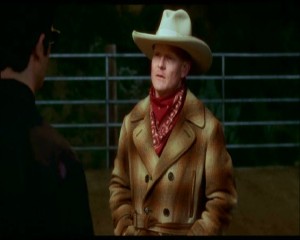
I’ve also read the “cowboy” could be interpreted as a meta level, Lynch speaking directly to the audience through that character.
Cowboy: “You will see me one more time, if you do good, you’ll see me two more times, if you do bad”
In other words, talking about how many viewings it would take for you to better understand the ambiguity.
A lot of trademark Lynch can be observed, dreams, nods to the 50s, taboo sexuality, downright weirdness, the use of electricity and lamps, music provided by composer Angelo Badalamenti, etc. A clue to solving what’s going on I heard about in the actors studio, where host James Lipton says the name on the badge the waitress is wearing is different depending on who’s looking at her, so someone must be wrong.
Among my favourite Lynch films. Several scenes play out as comedy, which is part of the charm and appeal for me, the director shows he has a sense of humour and doesn’t take everything too seriously.
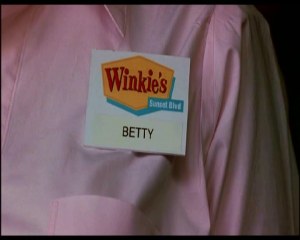
Although not horror, to me, the film at times has the atmosphere of a video game like Phantasmagoria, where you play a beautiful blond trying to solve a mystery with dangers lurking around every corner, keys and secret doors, etc.
Readers, any thoughts on Mulholland Dr?









